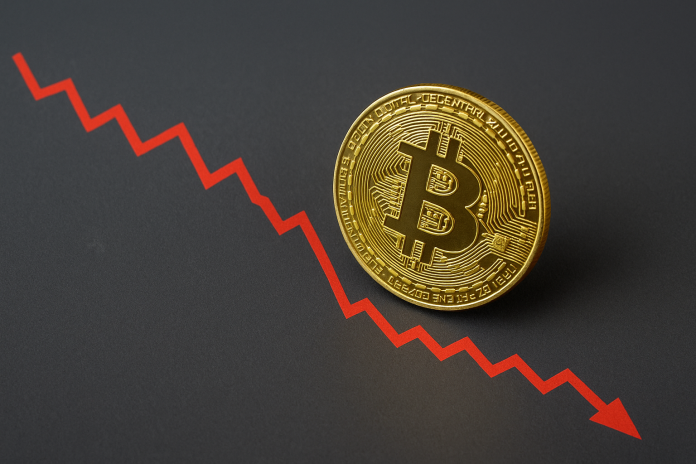
Bitcoin’s latest slide below the ninety thousand dollar mark has rattled crypto traders and deepened concerns across global markets already unsettled by shifting expectations around US monetary policy. The drop, which briefly pushed the world’s largest digital asset to the high eighty nine thousand dollar range on Tuesday, marks a sharp reversal from its early October peak above one hundred twenty six thousand dollars and wipes out all gains logged so far in 2025.
In just six weeks, roughly one point two trillion dollars in value has vanished from the broader crypto ecosystem, according to CoinGecko figures. The decline has unfolded alongside a cooling appetite for risk across equities and other speculative assets, as doubts grow over whether the Federal Reserve will deliver a rate cut in December. Equity markets, after rallying for months, have slipped back from recent highs, leaving assets like Bitcoin vulnerable to sharper swings.
Market analysts point to a mix of macro pressures and crypto specific fragilities. Joshua Chu of the Hong Kong Web3 Association cautioned that rapid withdrawals by listed companies and institutional investors have accelerated the downturn. As support fades and economic uncertainty rises, he said, confidence can unravel quickly. This erosion has been intensified by outflows from exchange traded funds and other structured products, particularly among traders who entered the market on hopes of favorable US regulatory moves.
Joseph Edwards of Enigma Securities noted that selling pressure is not unusually heavy on its own, but the buy side has weakened meaningfully. Many smaller investors remain discouraged after October’s sharp flash crash, which triggered nearly nineteen billion dollars in liquidations. That episode also drained momentum from altcoins and speculative plays that typically benefit from bursts of retail enthusiasm.
Shares of crypto linked companies including miners Riot Platforms and Mara Holdings, as well as Coinbase, have fallen alongside Bitcoin. A wave of smaller firms that adopted digital asset treasury strategies earlier in the year now face mounting strain. Standard Chartered estimates that a drop below ninety thousand dollars places nearly half of corporate Bitcoin holdings underwater, meaning the tokens are worth less than their purchase price. Collectively, public companies hold about four percent of all Bitcoin in circulation and just over three percent of the ether supply.
Even the largest corporate holder, Strategy Inc, led by Michael Saylor, has continued to accumulate tokens. The company purchased more than eight thousand Bitcoin on Monday, pushing its total to nearly six hundred fifty thousand at an average cost of about seventy four thousand four hundred dollars per token.
Ether has faced similar pressure, losing almost forty percent of its value since August. Broader sentiment, according to Astronaut Capital’s Matthew Dibb, has remained subdued ever since the heavy deleveraging in October.
Options traders appear braced for further downside, with demand rising for protection at eighty five thousand and eighty thousand strike levels. While some long term holders see the current slide as an opportunity to increase exposure, institutional portfolios may continue to reduce risk as macro variables shift.
With crypto markets still absorbing waves of forced selling, ETF outflows and ongoing macro uncertainty, traders expect choppy conditions to persist into the coming months.
This image is the property of The New Dispatch LLC and is not licenseable for external use without explicit written permission.







